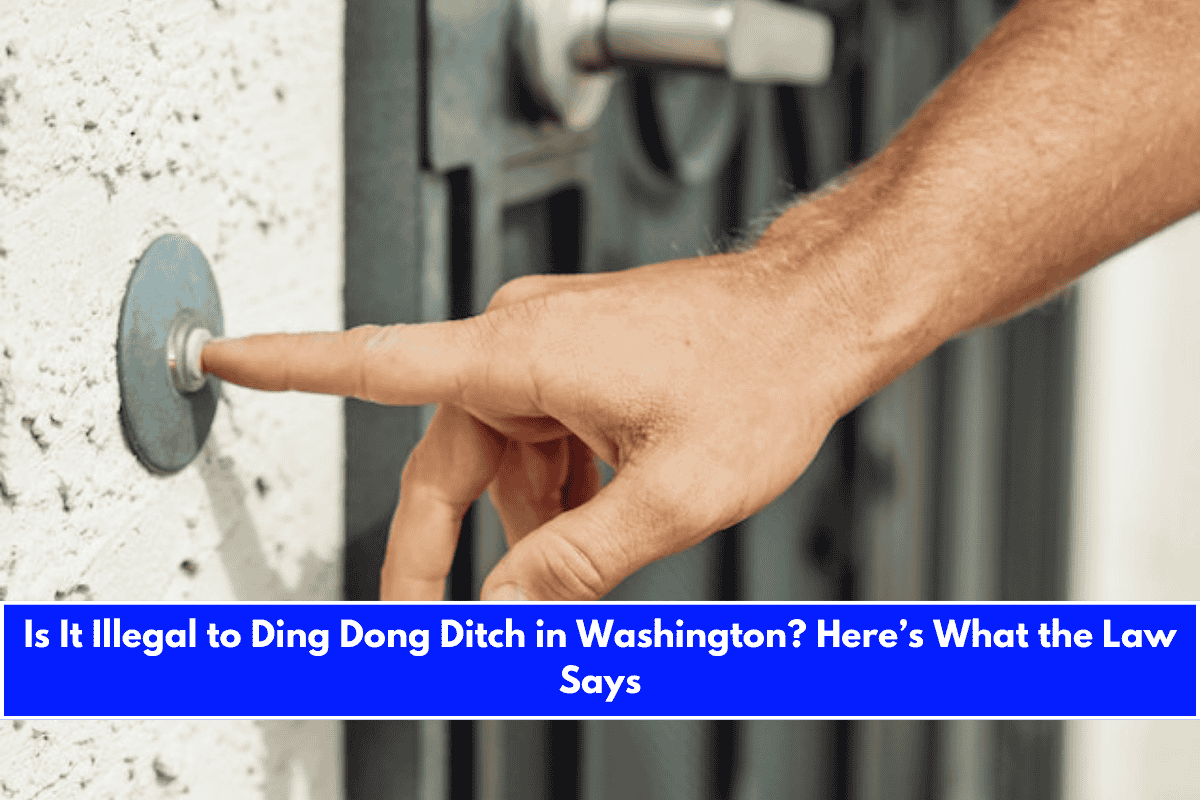Ding dong ditching—ringing someone’s doorbell and running away before they answer—has long been considered a mischievous childhood prank. But is it actually illegal in Washington State? Here’s a detailed look at the law and potential consequences.
No Law Explicitly Banning Ding Dong Ditch
Washington State law does not explicitly mention or prohibit ding dong ditching as a specific offense. There is no statute that directly addresses the act itself, so simply ringing a doorbell and running away is not automatically a crime.
Trespassing Concerns
However, ding dong ditching can cross into criminal trespass under certain circumstances. According to RCW 9A.52, a person is guilty of criminal trespass in the second degree if they enter or remain unlawfully on someone’s property.
If you go onto private property (especially fenced or clearly marked as private), you could be cited for trespassing—even if you leave quickly after ringing the bell.
A Washington Court of Appeals case affirmed that the implied license for people to approach a front door does not extend to pranks like ding dong ditching, especially when accompanied by offensive behavior or when the property is fenced and not open to the public.
In such cases, courts have found that the pranksters exceeded the scope of any implied invitation and could be found guilty of criminal trespass.
Harassment and Disturbing the Peace
If ding dong ditching is repeated or specifically intended to harass, intimidate, or cause distress to the homeowner, it may be considered harassment, which is against the law in Washington.
The law defines harassment as engaging in a course of conduct that would cause a reasonable person to suffer significant emotional distress.
Additionally, if the prank is disruptive enough, it could be considered disturbing the peace or a municipal infraction, especially if it happens late at night or repeatedly.
Real-World Consequences
- First-time Offenders: Usually, if caught, pranksters might receive a warning from law enforcement or be told not to return to the property.
- Repeat or Aggravated Offenses: Repeated ding dong ditching or actions that escalate to harassment, vandalism, or trespassing can lead to citations, fines, or even misdemeanor charges.
- Municipal Ordinances: Some cities or towns may have specific nuisance or trespassing ordinances that could apply, resulting in fines.
Summary Table: Ding Dong Ditching in Washington
| Situation | Legal Status | Possible Consequences |
|---|---|---|
| One-time, harmless prank on open property | Not explicitly illegal | Warning, no charges likely |
| On fenced/private property or repeated acts | Can be criminal trespass | Citation, misdemeanor charge, fines |
| With intent to harass, intimidate, or cause fear | Can be harassment | Criminal charges, fines, possible arrest |
| Escalates to vandalism or property damage | Criminal offense | Arrest, fines, civil liability |
Ding dong ditching is not specifically illegal in Washington, but it can quickly become a legal issue if it involves trespassing, harassment, or property damage.
The seriousness depends on the circumstances, intent, and local ordinances. What might seem like harmless fun can lead to real legal consequences—especially if repeated or targeted—so it’s wise to think twice before ringing and running.
Sources:
- https://keyw.com/ding-dong-ditching-a-prank-or-a-crime-in-washington-state/
- https://www.avvo.com/legal-answers/is-ding-dong-ditching-illegal-in-wa-state–4100473.html
- https://www.pumphreylawfirm.com/blog/is-ding-dong-ditching-as-harmless-as-pranksters-think/
- https://caselaw.findlaw.com/court/wa-court-of-appeals/1746870.html
- https://www.legalreach.com/blog/is-ding-dong-ditching-illegal-it%E2%80%99s-more-serious-than-you-might-think











Leave a Reply